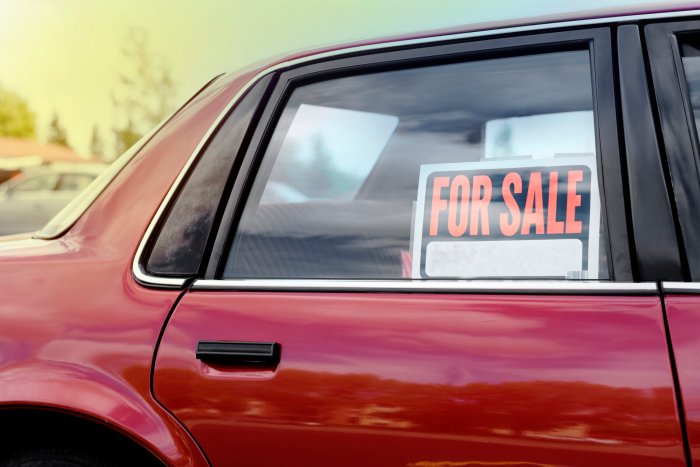Guide to buying a used car from a private seller takes center stage, offering a comprehensive journey into the world of purchasing pre-owned vehicles from individuals. Delve into the intricacies of this process with expert tips and insights for a successful transaction.
Exploring the make and model, checking vehicle history, inspecting inside and out, negotiating prices, and completing the purchase are all vital steps covered in this guide.
Researching the Vehicle
When buying a used car from a private seller, it is crucial to conduct thorough research on the vehicle to make an informed decision. Researching the make and model, checking the vehicle’s history report, and verifying the vehicle identification number (VIN) are essential steps in this process.
Checking the Vehicle’s History Report
Before finalizing the purchase of a used car, it is important to obtain a comprehensive vehicle history report. This report provides valuable information about the car’s past, including any accidents, title issues, service records, and more. To get the history report, you can use online services like Carfax or AutoCheck by entering the VIN of the vehicle.
When planning a long trip, comfort and luxury are key factors to consider. That’s why finding the best luxury SUVs for long trips is essential. These vehicles offer spacious interiors, advanced technology, and smooth rides, making your journey enjoyable and stress-free.
Verifying the Vehicle Identification Number (VIN), Guide to buying a used car from a private seller
One way to ensure the legitimacy of a used car is to verify its Vehicle Identification Number (VIN). The VIN can be found on the dashboard near the windshield or on the driver’s side door jamb. Make sure the VIN on the car matches the one listed on the title, registration, and insurance documents. Additionally, check for any signs of tampering or alterations to the VIN, as this could indicate potential issues with the vehicle’s history.
Inspecting the Car

When buying a used car from a private seller, it’s crucial to thoroughly inspect both the exterior and interior of the vehicle to ensure you’re making a wise investment. Additionally, a test drive is essential to evaluate the car’s performance and identify any potential issues. Here is a checklist to guide you through the inspection process:
Exterior Inspection
- Check for any signs of rust, dents, or scratches on the body of the car.
- Inspect the tires for even wear and proper inflation.
- Look under the car for any leaks or damage to the exhaust system.
- Test all lights, including headlights, taillights, and turn signals.
Interior Inspection
- Check the condition of the seats, dashboard, and upholstery for any tears or stains.
- Test all electronic components such as the radio, air conditioning, and power windows.
- Inspect the trunk for any signs of water damage or rust.
Test Driving the Car
- Start the car and listen for any unusual noises coming from the engine.
- Test the brakes by driving at different speeds and applying them firmly.
- Pay attention to how the car accelerates and shifts gears, ensuring smooth operation.
- Check the steering for responsiveness and any vibrations while driving.
Checking for Signs of Damage or Wear
- Inspect the engine bay for any leaks or worn-out belts.
- Look for signs of paint overspray, which could indicate previous repairs or accidents.
- Check the VIN number to ensure it matches the one on the title and registration documents.
- Have a mechanic inspect the car for any hidden issues before finalizing the purchase.
Negotiating the Price
When it comes to negotiating the price with a private seller for a used car, there are several strategies you can employ to ensure you get a fair deal.
Determining Fair Market Value
Before entering into negotiations, it’s important to research the fair market value of the car you are interested in. Consider factors such as the make, model, year, mileage, and overall condition of the vehicle. Websites like Kelley Blue Book or Edmunds can provide valuable insights into the average selling price for similar cars in your area.
Restoring classic cars can be a rewarding hobby, but it requires skill and knowledge. If you’re interested in learning some classic cars restoration tips and tricks , there are various techniques and methods that can help you bring old vehicles back to their former glory.
From paint restoration to engine rebuilding, these tips will guide you through the restoration process.
Tips for Discussing Price Based on Inspection Results
After inspecting the car, use any findings to your advantage during negotiations. If there are noticeable issues or repairs that need to be addressed, bring these up with the seller and use them as leverage to negotiate a lower price. Be prepared to walk away if the seller is not willing to budge on the price.
Completing the Purchase

Before finalizing the purchase of a used car from a private seller, there are important steps to take to ensure a smooth transfer of ownership.
Necessary Paperwork
When buying a car from a private seller, it is crucial to have the necessary paperwork in order to legally transfer ownership. This includes:
- Vehicle title: The seller must provide a valid title that shows they are the legal owner of the car.
- Bill of sale: A bill of sale is a document that records the transaction details, including the purchase price, date of sale, and the names and signatures of both the buyer and seller.
- Release of liability: This document protects the seller from any liability once the car is sold, transferring responsibility to the new owner.
Transferring Ownership
To transfer ownership of the vehicle, follow these steps:
- Fill out the back of the title with the seller’s information and have them sign it.
- Complete a bill of sale with all relevant details of the transaction.
- Submit the signed title, bill of sale, and release of liability to the local Department of Motor Vehicles (DMV) to officially transfer ownership.
Importance of Obtaining a Bill of Sale
Obtaining a bill of sale is crucial as it serves as a legal document that protects both the buyer and seller in case of any disputes or issues that may arise after the sale.
Last Recap: Guide To Buying A Used Car From A Private Seller

In conclusion, armed with the knowledge from this guide, you can confidently navigate the process of buying a used car from a private seller. Make informed decisions and secure a deal that suits your needs and budget.